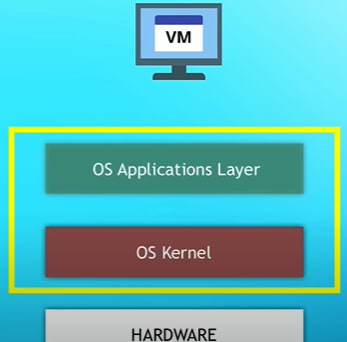An Interest In:
Web News this Week
- April 28, 2024
- April 27, 2024
- April 26, 2024
- April 25, 2024
- April 24, 2024
- April 23, 2024
- April 22, 2024
How Docker is helping developer and Dev Ops team??
As we all are aware that many many tech companies adopted containerization bases applications because of their growing demand. But what problems are solved by using docker?
For Developer- What is the developer's main task in the job- writing codes?
But Developer has to do all the setup work before writing codes and for different environments different sets up, version issues etc.
What if I don't have to do set up and do only coding?
Here are some problems solved by docker-
Portability: Docker containers are portable and can run consistently across different environments, from development to production, without changes or configuration. This allows developers to easily move their applications between different systems, reducing the risk of environment-related issues.
Dependencies: Docker allows developers to package an application and its dependencies into a single unit called a container. This ensures that all the required dependencies, libraries, and configurations are included in the container, which eliminates the "works on my machine" problem and makes it easy to share and deploy applications.
Consistency: Docker provides a consistent runtime environment for applications, regardless of the underlying infrastructure. This reduces the risk of compatibility issues and ensures that applications behave predictably across different environments.
Scalability: Docker makes it easy to scale applications horizontally by adding or removing containers as needed. This allows developers to quickly respond to changes in demand and ensures that the application can handle increased traffic without downtime or performance issues.
Speed: Docker can significantly reduce the time it takes to set up and configure development, testing, and production environments. This enables developers to focus on writing code and delivering features rather than dealing with infrastructure-related tasks.
And the problems that the Operation team faces are:
Environment inconsistencies: Applications often behaved differently in different environments due to differences in the underlying infrastructure, which made it difficult to replicate issues and deploy applications reliably.
Resource utilization: Applications often required dedicated infrastructure, which resulted in underutilized resources and higher infrastructure costs.
Complex deployments: Deploying applications often required manual configuration and scripting, which was time-consuming and error-prone.
Limited scalability: Scaling applications vertically by adding more resources to a single server was often complex and expensive, and scaling horizontally by adding more servers required complex load balancing and networking configurations.
Dependency management: Managing dependencies between applications and different versions of libraries and software were often difficult and error-prone, leading to compatibility issues and application fail
To address all these issues many companies started using a containerization-based approach.
Terms that are always used with Docker are:
a.Container b.Images
What is an Image in Docker?
An image is a template that defines the contents and configuration of a container. An image is a read-only file that includes everything needed to run an application, such as code, runtime, system tools, libraries, and settings.
What is a container?
A container is a lightweight, standalone executable package that includes everything needed to run an application, such as code, runtime, system tools, libraries, and settings. A container is an instance of a Docker image that runs as a process in isolation from the host system and other containers.
Then what is different between Container and Virtual Machine?
To Know the difference first have to know the general OS Structure.

Every OS(Operating systems like Windows, macOS, or Linux) has three layers.
The kernel layer serves as the operating system's core, handling hardware allocation, memory management, and file systems for the application layer.
Docker solely virtualizes the application layer, while Virtual Machines virtualize both the OS and Kernel layers.
That is the reason has compatibility problem but docker has given solution for this(Docker Desktop).
In summary, Docker containers offer a versatile and effective method for packaging and deploying applications, ensuring consistent and isolated runtime environments that operate seamlessly across various systems and infrastructures.
How to Set Up Docker, Create a Docker Image, and Run It?
So Overall workflow looks like in docker?
Be sure to check out my upcoming blog post!
Original Link: https://dev.to/vijendra/how-docker-is-helping-developer-and-dev-ops-team-m4n
Dev To
 An online community for sharing and discovering great ideas, having debates, and making friends
An online community for sharing and discovering great ideas, having debates, and making friendsMore About this Source Visit Dev To




